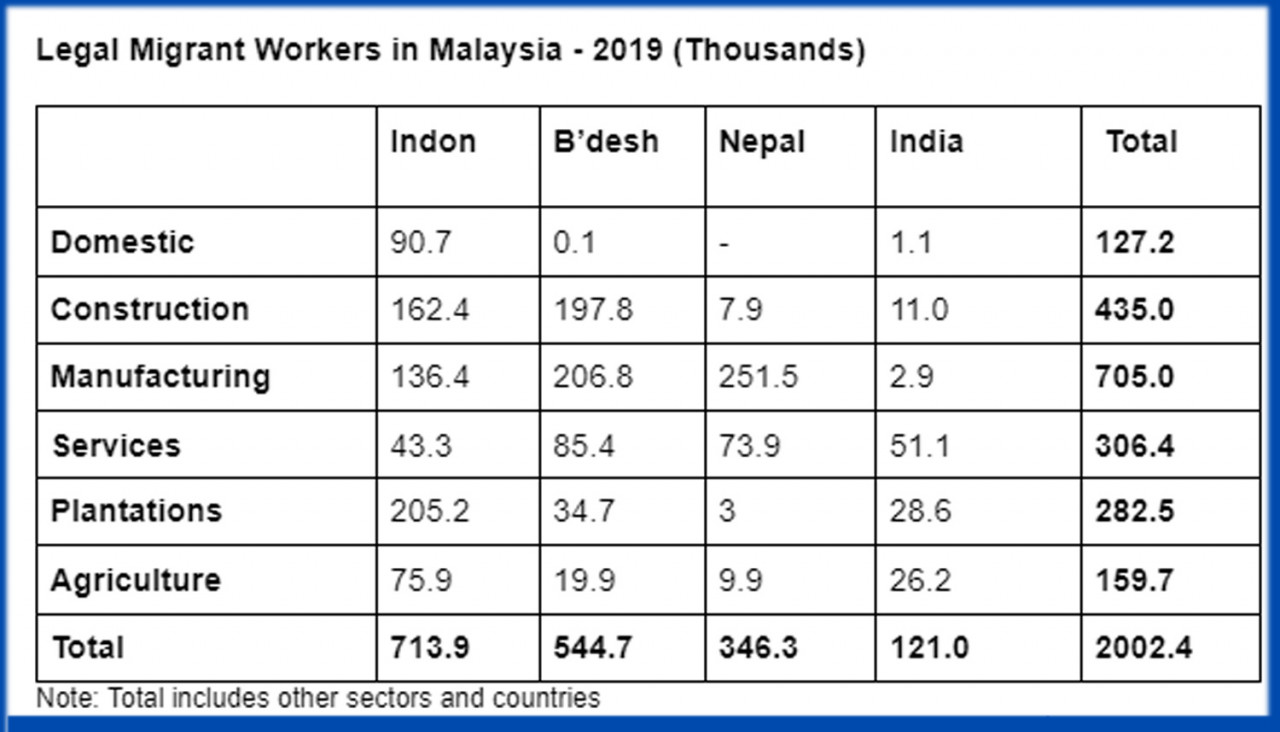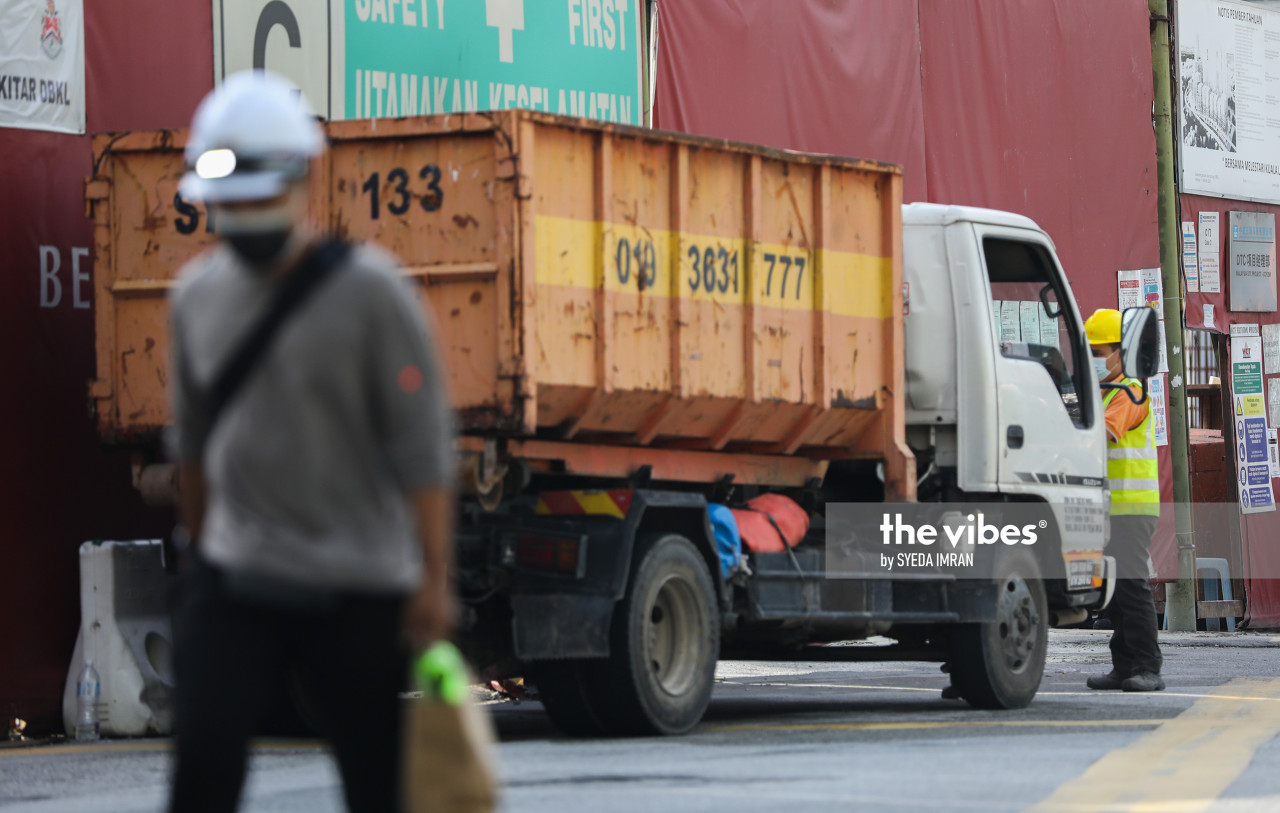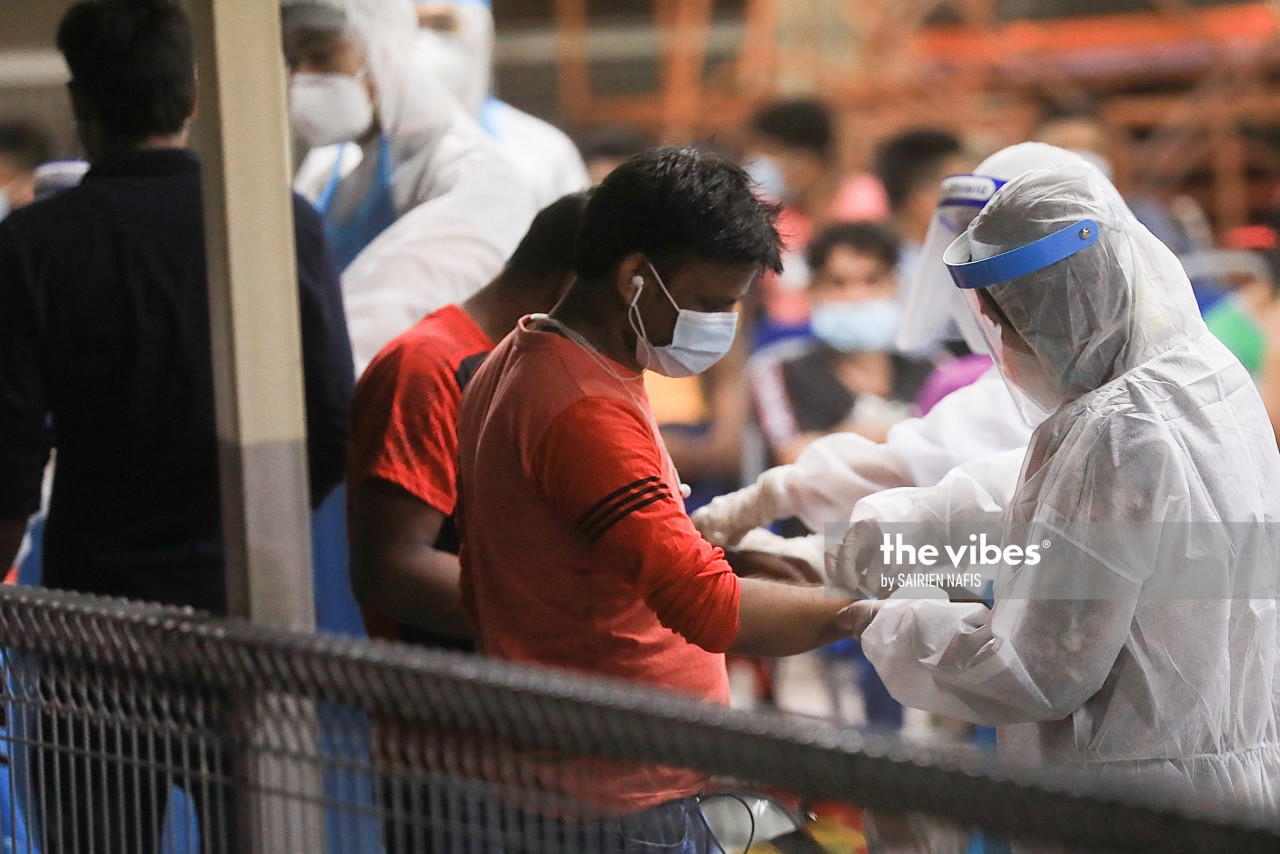A DECADES-OLD problem studiously ignored by successive governments – despite so many articles written and questions raised in Parliament and elsewhere – is going to come back and bite us on our backsides as we desperately deal with increasing numbers of infections and deaths from the Covid-19 pandemic.
Unless and until the problem of migrants – specifically migrant workers, both documented and undocumented – is properly considered and included in any Covid-19 mitigation programme, things will continue to get worse even as more people are vaccinated. And there is no telling how long the problem will be around us.
The only way to overcome this major roadblock is to simply remove it and wholeheartedly include as many as six million migrant workers (which is about a third of the documented and undocumented workforce of an estimated 18 to 19 million) into the vaccination programme – the only workable solution right now to mitigate the pandemic and get back to some form of normalcy.
The problem is to reach all of these people. It is complicated because we do not know who and where the undocumented workers are; there seem to be middlemen who will do the vaccination for a price, and mechanisms are not in place to make them come forward to get their vaccination.
First, how do we get that six million number? Government figures (see the table below) estimated just two million documented migrant workers for 2019. This will likely have gone up. Various estimates put undocumented migrant workers at between two and four million. To err on the side of caution, let’s take the top-end of estimates, which make out about six million migrant workers to be vaccinated.

Source: Ministry of Human Resources, 2019, quoted on page 7 of the Migrant Workers and Covid-19 Outbreak in Malaysia report
As all Malaysians know – or ought to know – it is a tough life for migrant workers, who are often at the mercy of employers who pay them little and force them to work in appalling conditions, as well as of agents who take as much as half of their earnings.
While maids are better provided for because they receive food and accommodation, that is not happening with workers in other sectors who face crowded and unsanitary conditions, which are very conducive for the spread of infectious diseases – even for documented workers.
The table above shows documented migrant workers in Malaysia. Indonesia continues to be the largest source of workers, followed by Bangladesh and Nepal.
What is interesting is that domestic workers form only a small proportion of total workers – 127,200 workers, or about 6%.
Manufacturing is now the largest chunk with 705,000 workers, or more than a third of the documented migrant workforce, followed by construction with 435,000 ,or over a fifth. Services come in with 306,400 (15%), followed by plantations with 282,500 (14%), and agriculture, 159,700 (8%).
The entire range of the economy is heavily dependent on migrant workers.
Up to four million undocumented migrant workers will be similarly spread throughout the entire economy, with employers simply contracting them from agents with no responsibility for their welfare or upkeep, and them operating on a freelance, daily-paid basis.
It is a system rife with corruption at every level, poor record-keeping, suppression of workers’ rights and a hundred other ills. Everybody closes both their eyes, and all but the workers and their families benefit from the suppressed wages and poor working conditions in manufacturing, construction, services and agriculture, including plantations.
When infection breaks out, the crowded conditions in workers’ quarters – many are so bad that they are basically hovels with limited sanitary facilities and do not deserve to go by the name “quarters” – all get virtually infected. At one Top Glove factory, more than 5,000 were infected in a matter of days.

We are also talking about undocumented workers here, who do not live in quarters, but in worse accommodation and also freely mingle with the community at large. This leads to an increase in cases within the community – also known as a sporadic infection, for which there is no apparent cluster or clusters.
By the way, this problem of migrant workers – most of whom are undocumented – also affects poorer Malaysians, whose wages are depressed further by the presence of cheap labour, but work under atrocious conditions.
Back to Covid-19: we need to ensure a substantial portion of foreign workers get vaccinated, and if they already have Covid-19, to properly isolate and quarantine them. That is not happening enough.
Workplace infections are primarily in manufacturing and construction – but the government keeps affected factories and sites in operation for economic and other more nefarious reasons. What needs to be done is targeted controls affecting the areas where the infections are taking place instead of blanket ones.
At the same time, it is necessary that those who are exposed be properly quarantined, which can only be done if they are in quarters. But because of the cramped areas, the infection spreads faster than a wildfire, even in quarters – there is no choice but to shut and isolate. Otherwise, we have the situation we deserve and which will progressively worsen. Hard decisions, but they have to be taken.
It happened in sterile Singapore, too, which used the big stick and basically cooped up those in the quarters with the threat of huge penalties. But remember, they know where all workers are – easier to keep them in because undocumented migrant workers are almost non-existent.
Makes you wonder how they do it, but we can’t: the difference is we have corruption, they pretty much don’t.
It is infinitely more difficult with undocumented migrant workers. How do we isolate them when we do not know who they are and where they live? The only thing to do is strict adherence to standard operating procedures and social distancing – these have to be enforced until there is some retreat or the vaccination rate reaches a high enough level to provide greater immunity.
For registered migrant workers, vaccination is an easier process – they can even use the MySejahtera app. I know of a migrant worker who got an appointment within two days of registering, which got me wondering, how come?
The problem is it is not clear how they get vaccinated – some pay RM50 for two doses, others pay RM380 for the same. Clearly, something is wrong here: middlemen are involved.
Some RM5 billion have been allocated for vaccines: why does anyone have to pay for it? Please, this needs to be sorted out. Is the vaccine minister listening? The issues have already been brought up in Parliament.

How do you get undocumented workers to be vaccinated? Some have been stung. Previous assurances that they will not be arrested saw the exact opposite happen. You need to give that assurance again and get it done this time. You can use the private clinics for this purpose.
Please do not charge too much, just the cost of vaccination; not more than RM50 for two doses. Make it affordable and, above all, demonstrably safe (from arrest that is), and they will come forward.
There is so much misinformation out there already it is alarming – such as dumping unwanted vaccines on them, injecting harmful stuff to kill them (I kid you not) besides the ever present danger of arrest. Perhaps announce a moratorium on all arrests of undocumented migrant workers by all authorities until we win the war over Covid-19.
Meantime, these workers are part of those who are very badly affected by the shutdown of many businesses and sectors caused by the lockdown. They need food aid at the very least. Let’s show them that Malaysians have not lost all their humanitarian traits in these trying times.
Drastic times call for brave, novel, and above all, honest measures devoid of all corruption, favours and profiteering. Only public pressure can result in this backdoor government making the right moves.
Turn on the screws – in Parliament and elsewhere. – The Vibes, July 29, 2021
P. Gunasegaram is chief executive of research and advocacy group Sekhar Institute and editorial consultant of The Vibes
